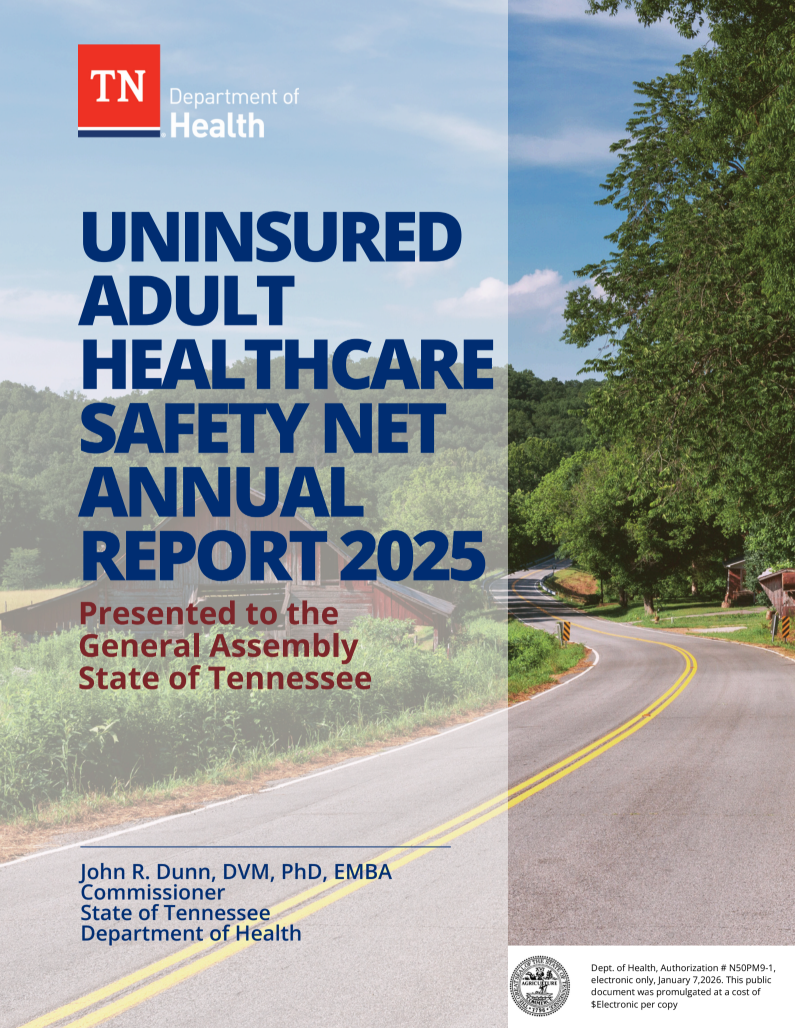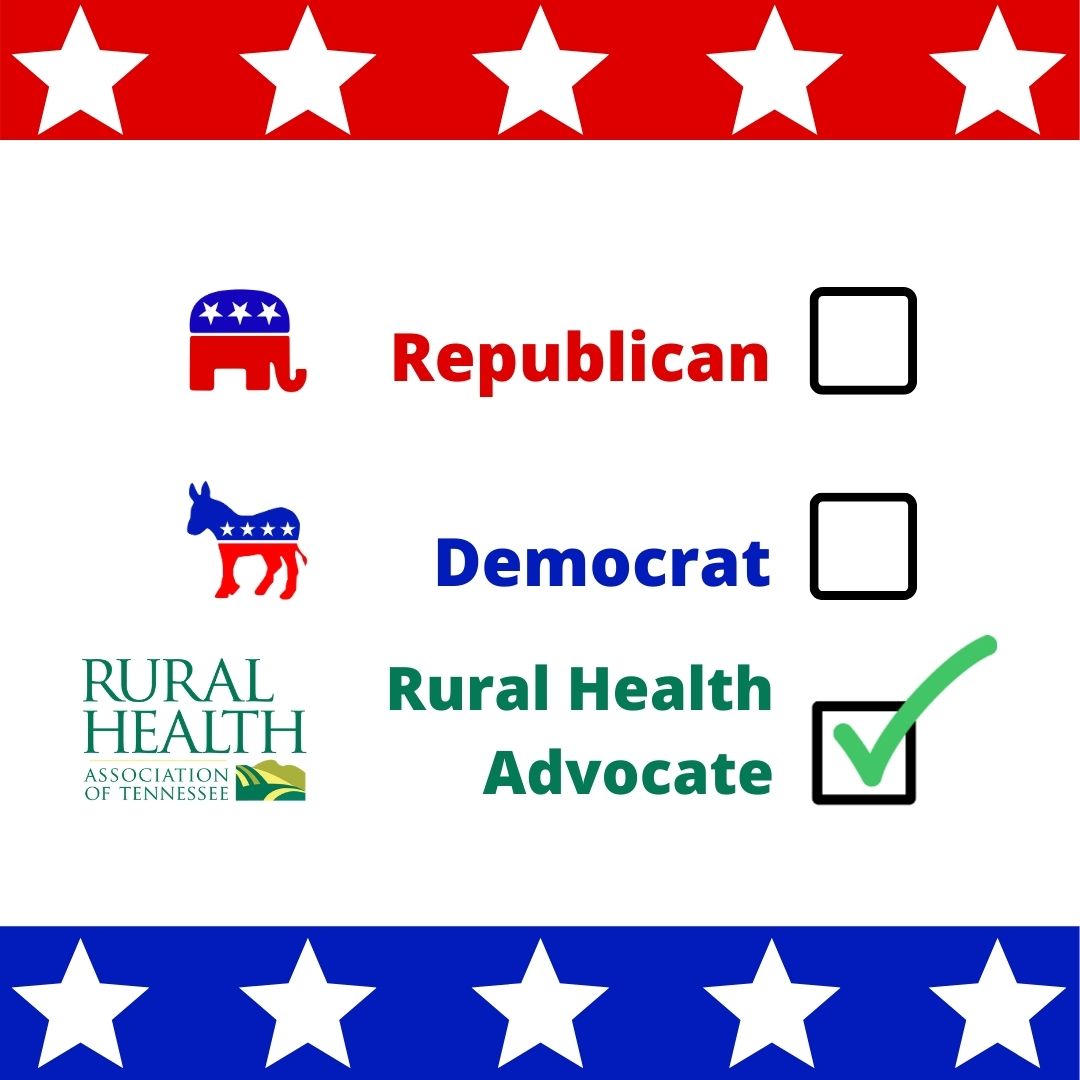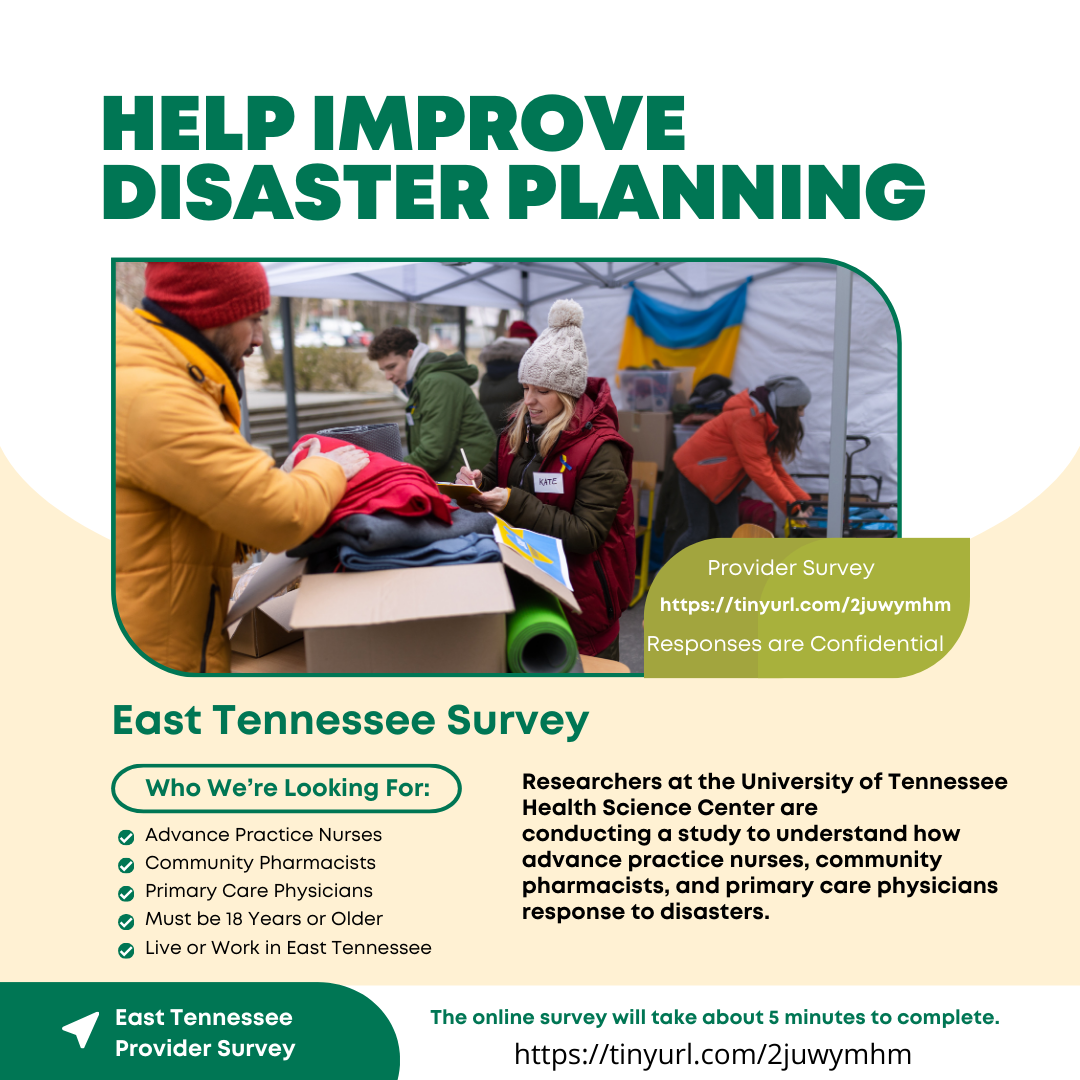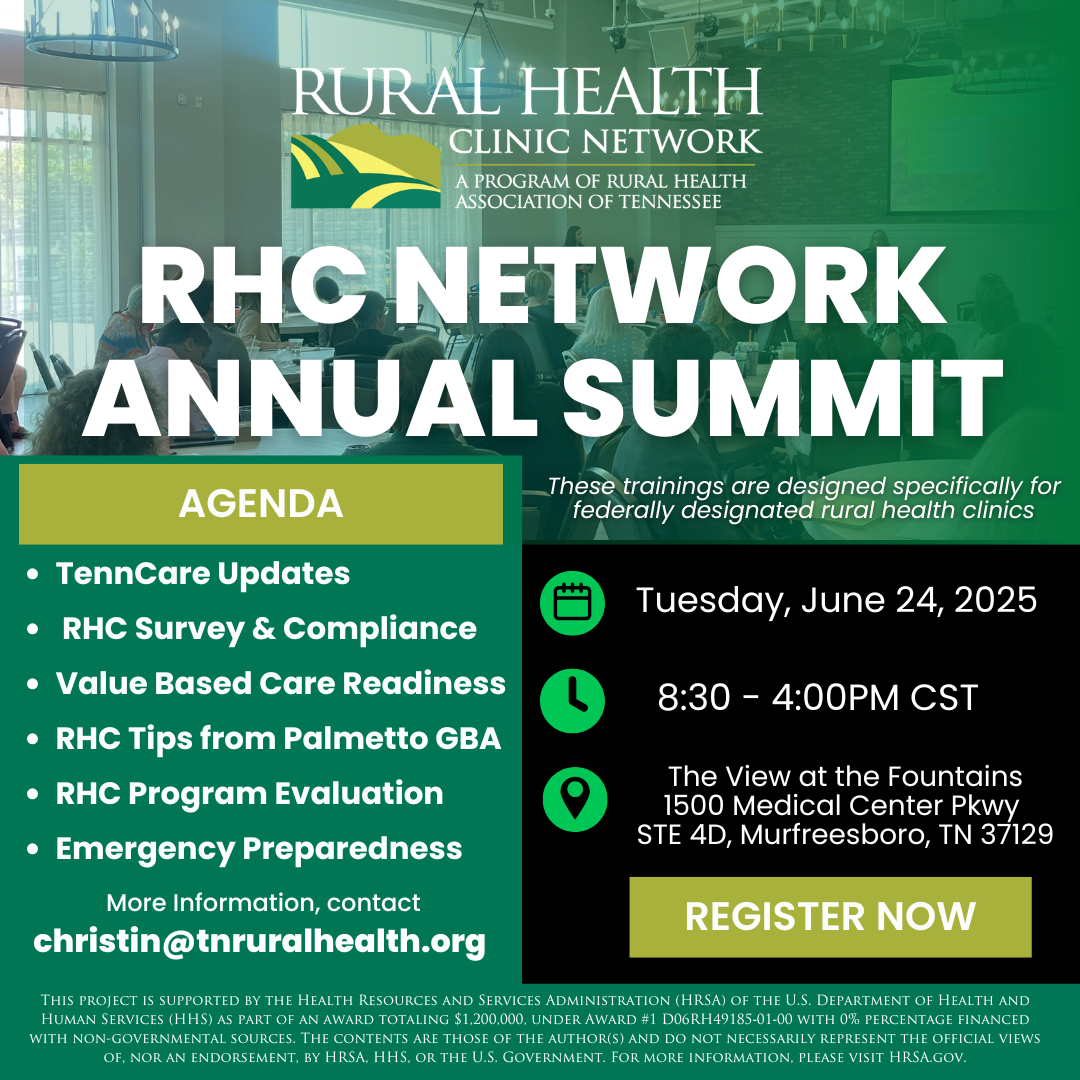2025 Safety Net Annual Report
 Uninsured Adult Healthcare Safety Net Annual Report
Uninsured Adult Healthcare Safety Net Annual Report
The Tennessee Department of Health’s State Office of Rural Health has released its FY25 Annual Report on the Uninsured Adult Healthcare Safety Net Program, providing a comprehensive look at the program’s reach, impact and outcomes across the state.
Covering the period from July 1, 2024, through June 30, 2025, the report was submitted to the Tennessee General Assembly and highlights how state funding was distributed to support care for uninsured adults. It also outlines the scope of the provider network, demonstrating how clinics and partners across Tennessee are working together to ensure access to essential healthcare services for some of the state’s most vulnerable populations.


 Rural Health Association of Tennessee celebrated National Rural Health Day on November 20th in Seiverville, Tennessee at our 31st Annual Conference, "Connecting Care, Strengthening Communities". The conference was a dynamic and engaging three days of learning from experts in rural health fields across the state, bringing together professionals within the healthcare field. It provided a platform for the exchange of knowledge, ideas and experiences, fostering growth and collaboration.
Rural Health Association of Tennessee celebrated National Rural Health Day on November 20th in Seiverville, Tennessee at our 31st Annual Conference, "Connecting Care, Strengthening Communities". The conference was a dynamic and engaging three days of learning from experts in rural health fields across the state, bringing together professionals within the healthcare field. It provided a platform for the exchange of knowledge, ideas and experiences, fostering growth and collaboration. 
 Rural Americans are more likely to be self-employed or work for small employers that do not offer insurance. More than one third (35.2 percent) of rural adult workers are not offered employer sponsored coverage, compared to 29.1 percent of urban workers. Without access to employer plans, rural residents depend heavily on the Marketplace and the affordability provided by premium tax credits.
Rural Americans are more likely to be self-employed or work for small employers that do not offer insurance. More than one third (35.2 percent) of rural adult workers are not offered employer sponsored coverage, compared to 29.1 percent of urban workers. Without access to employer plans, rural residents depend heavily on the Marketplace and the affordability provided by premium tax credits.

 Rural Health Association of Tennessee (RHA) is working hard to ensure that the federal
Rural Health Association of Tennessee (RHA) is working hard to ensure that the federal  Help improve disaster planning.
Help improve disaster planning. The Rural Health Association of Tennessee (RHA) is excited to host the Rural Health Clinic (RHC) Network Annual Summit on Tuesday, June 24, 2025, in Murfreesboro, TN. This highly anticipated event is dedicated to supporting federally designated Rural Health Clinics by providing training, resources, and networking opportunities to enhance clinic operations and patient care.
The Rural Health Association of Tennessee (RHA) is excited to host the Rural Health Clinic (RHC) Network Annual Summit on Tuesday, June 24, 2025, in Murfreesboro, TN. This highly anticipated event is dedicated to supporting federally designated Rural Health Clinics by providing training, resources, and networking opportunities to enhance clinic operations and patient care.
 The Tennessee Center for Health Workforce Development is thrilled to announce their inaugural TCWD Middle TN Discovery Summit, hosted by Belmont University and sponsored by TN HOSA, on Saturday, March 29, 2025, from 9:00 AM to 12:00 PM. This event is a fantastic opportunity to strengthen healthcare pathways by offering professional insights and showcasing vital programs and resources for anyone interested in pursuing a career in healthcare.
The Tennessee Center for Health Workforce Development is thrilled to announce their inaugural TCWD Middle TN Discovery Summit, hosted by Belmont University and sponsored by TN HOSA, on Saturday, March 29, 2025, from 9:00 AM to 12:00 PM. This event is a fantastic opportunity to strengthen healthcare pathways by offering professional insights and showcasing vital programs and resources for anyone interested in pursuing a career in healthcare. Join us for a valuable
Join us for a valuable  to become a Rural Health - Coding & Billing Specialist (RH-CBS), we urge clinical personnel (MD, DO, NP, PA, RN) to attend as well since clinical documentation is key to everything, as is building a shared foundation of knowledge.
to become a Rural Health - Coding & Billing Specialist (RH-CBS), we urge clinical personnel (MD, DO, NP, PA, RN) to attend as well since clinical documentation is key to everything, as is building a shared foundation of knowledge. Advocate for Change: Join Rural Health Day on the Hill
Advocate for Change: Join Rural Health Day on the Hill